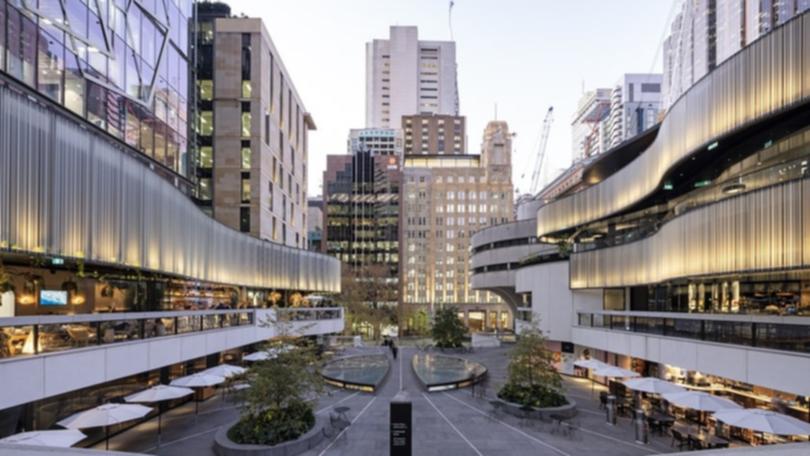Property giant Dexus back in the black amid working-from-home crackdown

The boss of property giant Dexus is optimistic about the outlook for city office markets as interest rates fall and staff are ordered back to their desks amid tighter working-from-home privileges.
The comments from Dexus chief executive Ross Du Vernet on Tuesday came just hours before the Reserve Bank slashed the cash rate by 25 basis points to 4.1 per cent, trimming borrowing costs for the first time since late 2020.
Despite this, Dexus shares closed down 0.8 per cent to $7.76.
Sign up to The Nightly's newsletters.
Get the first look at the digital newspaper, curated daily stories and breaking headlines delivered to your inbox.
By continuing you agree to our Terms and Privacy Policy.“We’re at a pivotal moment in the real estate market as interest rates shift and the conditions for an office market recovery are emerging,” Mr Du Vernet told analysts after the company swung to a half-year profit.
“Markets move in cycles and we are now reaching a turning point for real asset markets. Longer term trends remain sound with demand underpinned by strong population growth.”
Dexus reported a net profit of $10.3 million in the six months to the end of December, up from a net loss of $597.2m a year ago on the back of heavy writedowns. Revenue fell from $480.6m to $434.7m.
It reported a 13.9 per cent fall in adjusted funds from operations (AFFO) — its preferred performance metric — to $251.8m, or 23.4¢ per security, blaming higher interest rates and lower trading profits.
The real estate investment trust operates $14.5 billion worth of assets across office, industrial, healthcare, retail, infrastructure and alternatives, according to its website. It manages another $38.9 billion of investments in its funds management business.
The company — worth $8.3 billion — said its office portfolio occupancy remained well above market average at 93.5 per cent, albeit reducing since last financial year, predominantly as a result of the Victorian Government departing 80 Collins Street in Melbourne.
It is in the midst of trying to sell $2b worth of assets across the 2025-27 financial years in a bid to recalibrate its portfolio as tenants seek out central offices with top facilities.
Ord Minnett analysts said net absorption of premium office space had been positive at the expense of lower grades.
“Flight-to-quality is a major theme for office markets as occupiers seek high quality centrally located offices with amenities that appeal to staff,” they said.
“In the Sydney CBD, there has been a ‘flight to core’ with net absorption in the core of the CBD exceeding the other precincts.”
Barring unforeseen circumstances in the full financial year, Mr Du Vernet reiterated its expectation for AFFO of about 44.5¢-45.5¢ per security and distributions of 37¢ per security.

